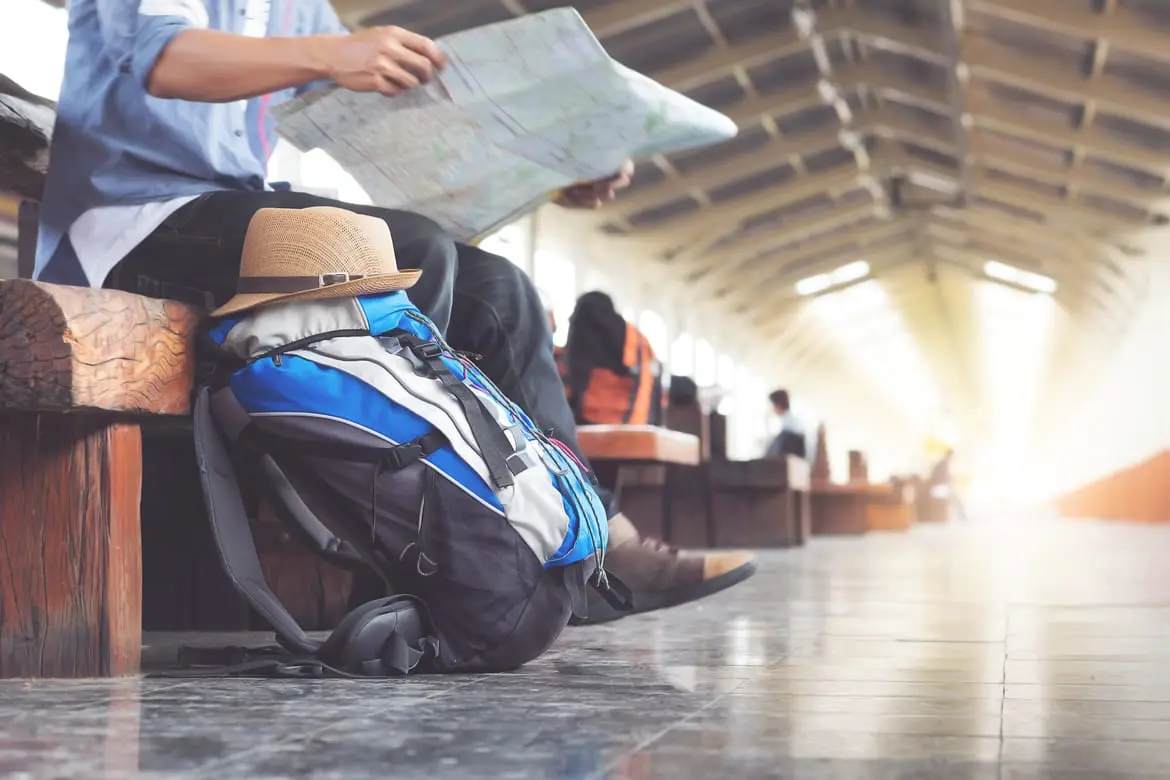

Source: Shutterstock
10 Travel Tips for Chronic Digestive Disorder
Last updated: Thursday, February 7, 2019 | 3 min reading time
Having a chronic digestive disorder doesn't mean you have to have an uncomfortable holiday.
Chronic digestive disorders, such as gastroesophageal reflux disease (GERD) and inflammatory bowel disease (IBD), are common conditions that some of us have to live with and build our lives around. Symptoms may include bloating, diarrhoea, gas, stomach pain and stomach cramps, and treatment can be a combination of medication and lifestyle changes.
Here are 10 tips on how you can manage your chronic digestive disorder to have a more stress-free and comfortable holiday.
1. Be mentally prepared
Just like how you make all your travel arrangements ahead of time, when dealing with a chronic digestive disorder, it is good to also prepare your mind in advance. Run through in your head all the possible scenarios you may face before the start of your holiday. This mental preparedness will put you in the right mindset to manage your trip well. If any of the scenarios pops up, you are more likely to stay calm and be ready.
2. Pack what you need
Make sure you bring all the prescription medication you need to counter any discomfort you may feel during your holiday. Pack these in your hand luggage, along with:
- stomach-friendly snacks (you will know what works for you)
- extra changes of clothes and underpants (stretchy and loose-fitting types to deal with bloating)
- products you need to handle incontinence
- sanitising wipes
3. Map out bathroom locations
Download a toilet or bathroom app so you know where to find bathrooms at your travel destination, and can plan your itinerary around them. Having these mapped out will take the worry off you whenever the need to visit the bathroom comes, so you can focus on enjoying the sights and activities.
4. Plan your diet
Reduce consumption of FODMAPs (Fermentable Oligosaccharides, Disaccharides, Monosaccharides, and Polyols), a collection of short-chain carbohydrates found in many common foods. These are known to increase the volume of liquid and gas in the small and large intestine, contributing to abdominal pain, gas and bloating, as well as diarrhoea and constipation. Keep to low-FODMAP foods while on holiday and avoid fast food outlets (or go for the healthier food choices on the menu).
5. Inform your travel companions
Dealing with chronic digestive disorder is hard enough without the added stress of trying to keep it a secret and making excuses for what can otherwise be perceived as anti-social behaviour. Tell your travel companions what you suffer from, and explain the symptoms and needs you will have while abroad. Inform them of any special travel and accommodation arrangements required, and the extra time you may need to spend in the bathroom.
6. Manage jet lag
Travelling across time zones can throw off your body's internal clock, and the resulting stress and lack of sleep can exacerbate your condition. Try to regulate your mealtimes and sleep schedule to help minimise symptoms.
7. Drink plenty of water
Travelling, especially on planes, puts you at risk of dehydration, which can cause constipation. Make sure you drink water regularly through the flight and during your holiday. Similarly, if you have diarrhoea, you'll need to replenish the fluids lost from the body by drinking enough water.
8. Take measures to avoid bacterial infection
To avoid unnecessary traveller's belly, try to stick to drinking boiled water. Taking clean water but placing it in a hygienically doubtful glass or mixing it with ice from questionable sources would increase your risk for bacterial infection. Avoid foods that could put you at risk, including raw and uncooked food of any kind, and food from street vendors.
9. Stay active
Try to get some light exercise during your trip to help lower stress levels and keep the foods in your digestive system moving.
10. Make the most of your holiday
A good vacation can relieve stress and reset your body and mind. Instead of feeling isolated or hampered by your digestive disorder, try to focus on your itinerary and on having a good time to reap the benefits of travel!
Bolen, B. (2018, August 24). Top 10 Tips for Traveling With IBS. Retrieved on 15 September 2018 from https://www.verywellhealth.com/top-tips-for-traveling-with-ibs-1945131
Bolen, B. (2018, April 02). What You Can and Cannot Eat on the Low-FODMAP Diet. Retrieved on 15 September 2018 from https://www.verywellhealth.com/foods-on-the-low-fodmap-diet-1944679
Digestive Disorders Health Center. (n.d.). Retrieved on 15 September 2018 from https://www.webmd.com/digestive-disorders/default.htm
5 Ways to Cope with a GI Disease or Disorder During the Holidays. (n.d.). Retrieved on 15 September 2018 from https://www.badgut.org/information-centre/a-z-digestive-topics/5-holiday-tips/
Bolen, B. (2018, April 02). What You Can and Cannot Eat on the Low-FODMAP Diet. Retrieved on 15 September 2018 from https://www.verywellhealth.com/foods-on-the-low-fodmap-diet-1944679
Digestive Disorders Health Center. (n.d.). Retrieved on 15 September 2018 from https://www.webmd.com/digestive-disorders/default.htm
5 Ways to Cope with a GI Disease or Disorder During the Holidays. (n.d.). Retrieved on 15 September 2018 from https://www.badgut.org/information-centre/a-z-digestive-topics/5-holiday-tips/
 Brain & Spine Care
Brain & Spine Care









